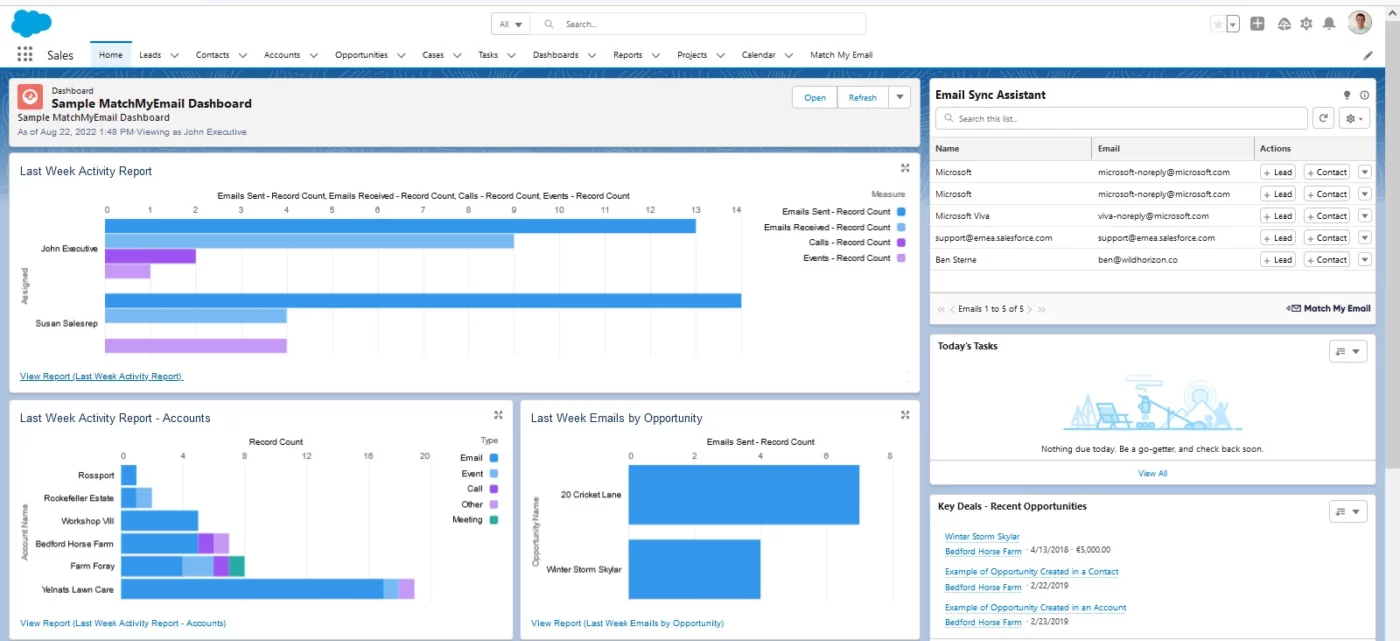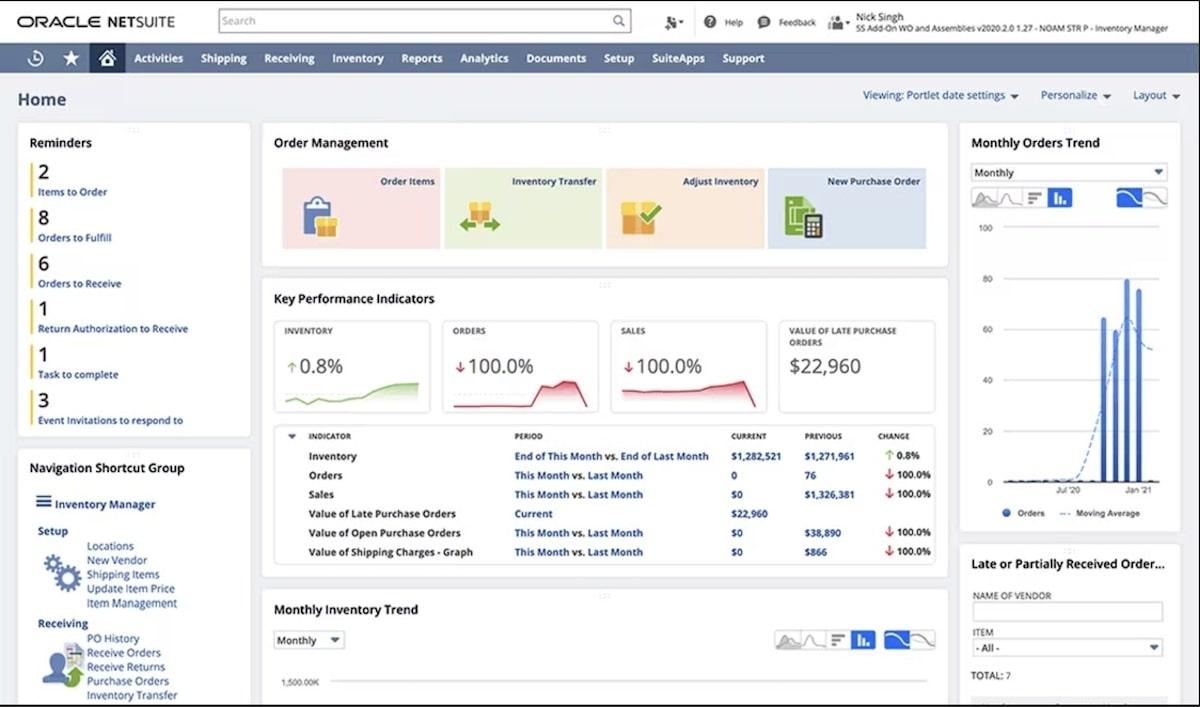How to Choose a CRM System for Your Business

Sorry, there were no results found for “”
Sorry, there were no results found for “”
Sorry, there were no results found for “”
Running a business between juggling countless tasks and keeping track of your customers can often feel overwhelming. That’s where a Customer Relationship Management (CRM) system comes in.
It helps you manage relationships and interactions with new and existing customers by centralizing data from various channels—like email, phone, and social media—giving you a comprehensive view of your customers and prospects.
The right CRM software also simplifies operations, enhances customer satisfaction, and drives business growth. But how do you select a CRM solution? This guide will walk you through everything you need to know about how to choose a CRM and give you an overview of the types of CRM you could use for your business.
A CRM tool manages and analyzes your customer interactions and data throughout the customer lifecycle. It’s a centralized hub for storing information about your customers, such as their preferences, purchase history, and interactions with your business. 96% of CRM users say that accurate CRM data improves their conversion rates.
But CRM isn’t just about storing and managing customer data; it’s about using that data to your advantage.
Centralizing customer information ensures that every interaction is informed and meaningful. A CRM tool enhances customer experience by providing personalized interactions, timely responses, and a seamless journey across all touchpoints and sales processes.
Consider your business’s unique needs and identify the specific features and functionalities a CRM solution should offer.
Ask yourself the following questions to find the best CRM system for your business:
Selecting the right CRM for your business isn’t a one-size-fits-all process. You must ensure your chosen CRM aligns perfectly with your business needs and goals. Let’s evaluate the critical CRM elements you should consider when making this important decision.
Before you choose CRM software, identify your business’s biggest headaches. Are you losing track of leads? Struggling to close deals? Or maybe your customer service team is drowning in tickets? A good CRM should be a targeted solution for your problems.
For example, if sales is your top priority at this moment, you’ll want a CRM with robust lead management, sales forecasting, and sales pipeline features. If customer service is your focus, look for a system with contact management, strong ticketing, and knowledge base capabilities.
Ease of use is the top priority for CRM software buyers because even the most advanced CRM system can fail without widespread adoption. Conversely, a simpler but user-friendly CRM ensures higher adoption rates and better productivity.
Look for a CRM with a clean interface and intuitive navigation. The system should be easy for your team to learn and use without extensive training. It’s essential to choose a CRM platform that aligns with your team’s tech-savvy preferences.
Your team will be the primary users of the new CRM software, so their input is valuable. Conduct surveys or have brainstorming discussions to understand their needs, preferences, and pain points before choosing CRM software.
Involving your team in the decision-making process boosts adoption rates and ensures the CRM meets their daily requirements. The best CRM systems align with your team’s workflow.
Budget is a critical factor in the CRM selection process. It’s essential to balance cost with the CRM features and benefits.
According to Nucleus Research, the return on investment on CRM is $8.71 for every dollar spent. This indicates the importance of viewing CRM as a long-term investment rather than a mere expense.
Evaluate the total cost of ownership, including setup, training, and ongoing maintenance. Invest in a quality CRM that can yield significant returns in the long run.
The best CRM solution should align with your long-term business objectives. Consider how the system can scale as your business grows and whether it can adapt to evolving needs.
Look for CRMs that offer customizable features and integrations to support your future expansion. For example, if you anticipate international expansion, choose a CRM with multilingual capabilities.
48% of marketers believe that integrating CRM solutions into their existing stack is the biggest CRM challenge. So, consider your existing apps and processes when choosing a CRM—look for software that integrates seamlessly with your existing tools to avoid data silos and streamline workflows.
A well-integrated CRM can save time, reduce errors, and provide a more comprehensive view of your customer data. For instance, integrating your CRM with your email marketing tools can help you personalize campaigns based on customer behavior.
Now, let’s explore CRM options in more detail.
Traditionally, businesses opted for on-premise CRM systems, which meant installing the software solution on their servers. While this offered a high degree of control, it also came with significant upfront costs, ongoing maintenance, and accessibility limitations.
In recent years, cloud-based CRM or SaaS CRM (CRM Software as a Service) have become popular for modern businesses due to their ease of use and accessibility. These CRM systems are hosted on the vendor’s servers and accessed via the Internet. They offer flexibility, scalability, and lower upfront costs since you pay a subscription fee.
According to the ‘Software Market Insights: CRM’ Report by Gartner, 70%-80% of companies are investing in cloud-based CRMs.
If budget or maintenance constraints limit your options for a comprehensive CRM, consider these CRM alternatives.
While there are countless CRM options, a few names have been around for longer. Let’s look at some of the leading players:

Salesforce has a robust platform with a wide range of features and integrations. Known for its strong sales automation capabilities, it’s a popular choice for larger enterprises. Salesforce’s AppExchange offers over 4,000 integrations, allowing you to build a seamless workflow.

HubSpot CRM focuses on inbound marketing and sales processes. It provides a comprehensive suite of tools for attracting and engaging customers. HubSpot’s user-friendly interface and emphasis on growth-focused features make it one of the popular sales and marketing automation tools for small and medium-sized businesses. It offers a free CRM version with essential features, making it an attractive option for startups.
Dynamics 365 is integrated with Office 365 applications. It offers strong capabilities in sales, customer service, and marketing automation. It is highly scalable and suitable for large enterprises. According to Forrester Research, service businesses using Dynamics 365 see a 346% return on investment.

Primarily aimed at mid-sized and enterprise-level businesses, NetSuite offers a comprehensive suite of cloud-based business management software, including CRM solutions. It’s particularly well-suited for companies with complex business operations and a need for integrated financial and customer data.
Choosing the right CRM provider can feel daunting, with countless options available. Salesforce, HubSpot, and Pipedrive are all solid choices, each with its own strengths.
Salesforce is known for its robust features and analytics, making it a popular choice for large enterprises. HubSpot, on the other hand, focuses on inbound marketing, support, and sales, offering a more integrated approach. Pipedrive is simpler and more intuitive, targeting smaller businesses.
While these platforms offer valuable tools, they can be complex to implement and don’t provide the comprehensive functionality you need beyond CRM, such as project or task management.
Here’s where ClickUp, a unique platform beyond traditional CRM limitations, comes into the picture. ClickUp CRM is a unified workspace that combines a cloud-based CRM system with project management, task management, document sharing, and more. This integrated approach eliminates the need for multiple tools, saving time and money.

Here’s why ClickUp stands out:


A study by Nucleus Research states that ClickUp can enable organizations to increase project load by more than 15%. This is a testament to the platform’s ability to streamline workflows and enhance team performance.
Moreover, ClickUp’s CRM Template provides a solid foundation for managing your customer relationships. It organizes customer data in one place and helps track leads, deals, and accounts.
You can also use it to monitor sales and customer satisfaction, nurture leads, and prioritize tasks by sales stage for better management. The template includes essential fields, views, and workflows to get you started quickly.
Implementing the right CRM software can transform your business. But, as with any significant business decision, there are pros and cons to consider. Let’s break it down.

A well-implemented CRM system can yield concrete benefits for your business, including:
While the benefits of the best CRM software are undeniable, there are potential challenges to consider:
Choosing a CRM is a big deal. It’s like selecting the ideal business partner; just as the right partner can elevate your company’s success, the right CRM can transform your customer operations.
ClickUp isn’t just a CRM; it’s your all-in-one business hub. With its powerful features, customization options, and affordable pricing, it’s the perfect platform to help you build stronger customer relationships, boost sales, and make smarter decisions.
Ready to take your business to the next level? Sign up on ClickUp today and start experiencing the difference a truly exceptional CRM can make.
© 2026 ClickUp